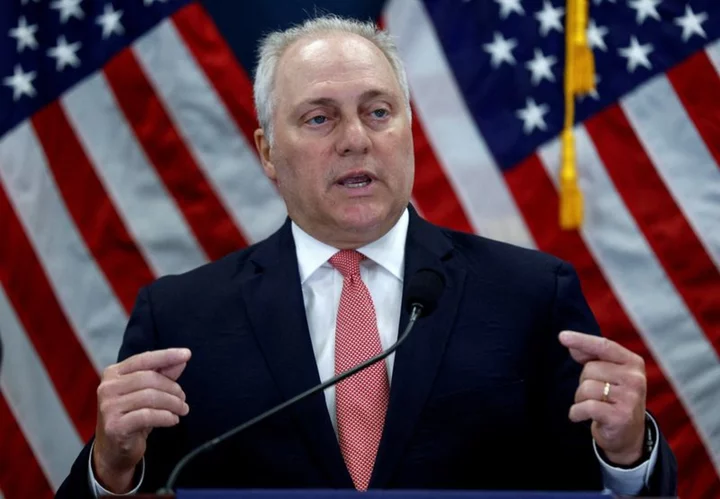By David Morgan
WASHINGTON (Reuters) -The U.S. House of Representatives is scheduled to consider fiscal 2024 defense spending legislation next week, Majority Leader Steve Scalise said on Friday.
The Republican-controlled House, which returns to Washington on Tuesday from its August recess, will consider an appropriations bill covering defense spending, according to Scalise's weekly floor schedule.
THE TAKE
The appearance of spending legislation on the House schedule could signal an end to a Republican feud over demands from its hardline wing that discretionary spending be cut to a fiscal 2022 level of $1.47 trillion. That number is $120 billion lower than what House Speaker Kevin McCarthy and Democratic President Joe Biden agreed to earlier this year.
Any deal on spending between House Republicans could also benefit McCarthy's efforts to move forward on a separate short-term stopgap measure, which congressional leaders say is necessary to keep federal agencies operating after current funding expires on Sept 30.
CONTEXT
* The House and Democratic-led Senate each need to pass 12 appropriations bills for the 2024 fiscal year beginning Oct. 1 and then negotiate compromise legislation that Biden can sign into law. The full House has passed only one bill so far, while the full Senate is expected to begin considering three measures on Monday.
* The two chambers are far apart on funding, with the Senate pursuing spending at the level set by McCarthy and Biden.
* A separate stopgap measure, known as a continuing resolution, would give lawmakers additional time to iron out their differences over spending by providing temporary funding.
(Reporting by David Morgan; editing by Rami Ayyub and Rosalba O'Brien)









